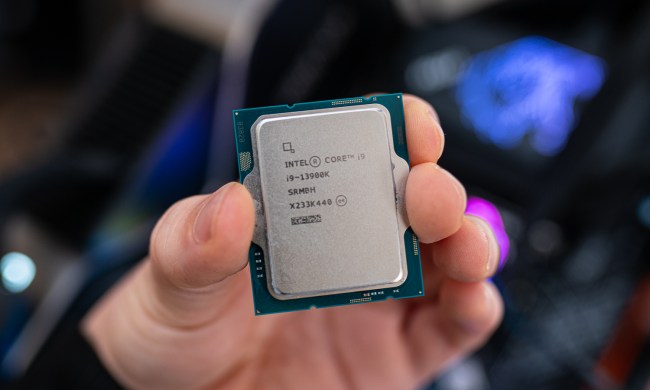Solid-state drives (SSDs) have been touted for notebook and netbook computer users for a while, since they use less power than conventional hard drives and, having no moving parts, tend to withstand the rigors and bumps of a mobile lifestyle better than traditional hard drives. However, the speed of SSDs can also boost desktop systems, particularly when used as startup and application drives. Now, chipmaker Intel is getting into the value SSD game, announcing its new 40 GB X25-V SSD drive for notebooks and desktop systems…and it’s priced at just $125 for 1,000 units, which means it should start showing up in OEM systems soon.

The X25-V complements Intel’s existing SSD line, which offers drives in 80 GB and 160 GB capacities. Unlike those larger drives, tho, Intel is touting the 40 GB X25-V as a way for desktop computer users to get a significant performance boost: users set up the SSD to launch Windows and their most common applications, while using conventional hard drives (you know, like the one the PC came with) for storing big stuff like photos, video, movies, and music. The X-25V ships with a set of utility tools (for Windows) that can help users manage and tune the performance of the drive, and the unit supports WIndows 7’s TRIM function to spread writes to the drive around the available storage to extend the drive’s usable lifetime.
Intel has not historically been well-known for storage products, but the company’s moves into the SSD arena—particularly smaller-capacity consumer-oriented products like the X25-V—seem to indicate the company wants to compete in the consumer storage market. Industry reports have the company getting ready to significantly increased the capacity of its SSD lines for both enterprise and consumers by the end of the year.


